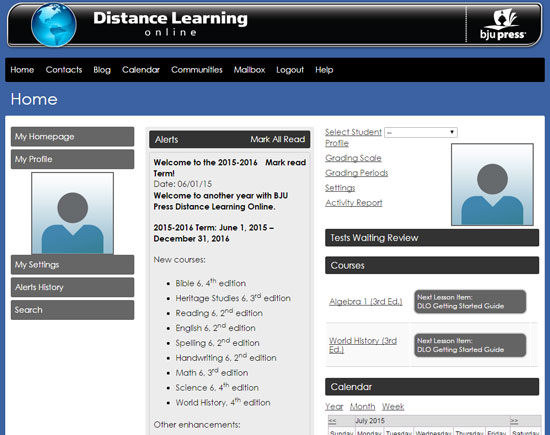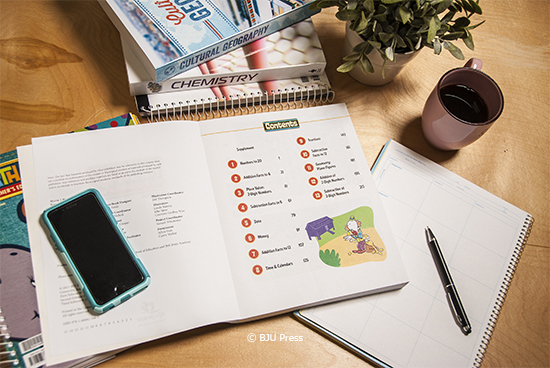You and your child have been successful in accessing Distance Learning Online (DLO); so now let’s talk about how things are set up. We’d like to cover two aspects today.

1. Printed Materials
Each course includes a Video Lesson Guide and Student Handouts. These packets provide an overview of the course and any related handouts to save you time and money on printing.
Video Lesson Guide
The VLG is specifically for parents and allows you to see how the course is laid out. It outlines the content, materials needed, Student Text or Worktext pages, assignments, and parent responsibility for each lesson.
Student Handouts
The SH packet provides the handouts your child needs for the lessons. Each page has the related grade, subject, and lesson printed on it. (We know how things can sometimes get out of order!)
The VLG and SH packets are the more challenging pieces of DLO to keep organized—primarily because of all the paper. We have three-hole punched each sheet so that it easily fits into a notebook, folder, or tray. You might want to consider color coding different subjects if your child is enrolled in multiple courses on DLO.

Creating an organizational system requires some planning, but the packets lend themselves to easy grouping by lesson, subject, grade, or any other option you choose! Our goal is to provide your family with sound educational resources from a biblical worldview that support your goals but are flexible enough so that you can choose to do what works best for your family. And if these printed materials get lost, no worries. The materials from these packets are in PDF form on DLO.
2. Online Course Materials
Each course Homepage in DLO provides your child with access to the course’s eTextbook (available for each course that includes a Student Text as opposed to a Student Worktext). This eTextbook can be viewed online or downloaded once you’ve created a Vitalsource Bookshelf® account. You can learn more about our eTextbooks at bjupresshomeschool.com.
Below is a summary of how the courses are set up on DLO.
Lessons
You and your child have access to the course lessons through your separate profiles. From here, you can both view the course lessons we have provided for your child to complete. (You can view sample videos of the lessons.) While DLO does allow you to customize your child’s learning experience, we recommend that you check your state guidelines to see what is required. Instructions, answer keys, and other attachments are provided as needed for you every day. Specific instructions for the parent are featured in a green box that your child is not able to see under his student profile.
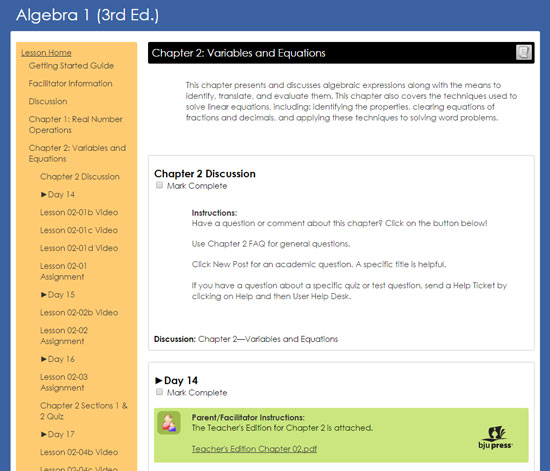
As your child completes each item, he can mark it complete to record his progress in the course.
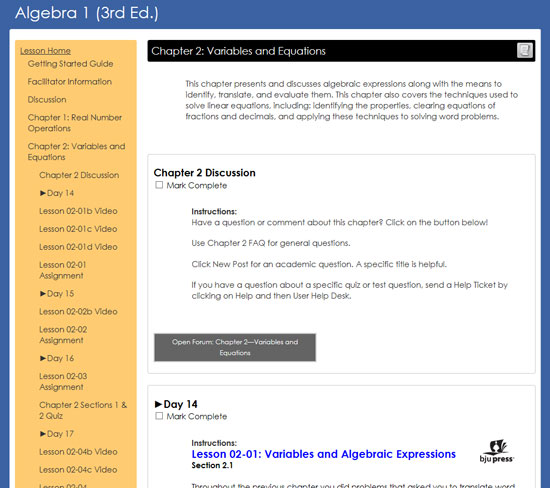
Discussion
Our high school math and science courses include discussion forums. Your child has the opportunity to ask questions related to his course and receive feedback from one of our DLO team members or other students currently enrolled in the same course. The forums don’t appear under your parent profile, but you can still view everything your child posts from your DLO Dashboard.
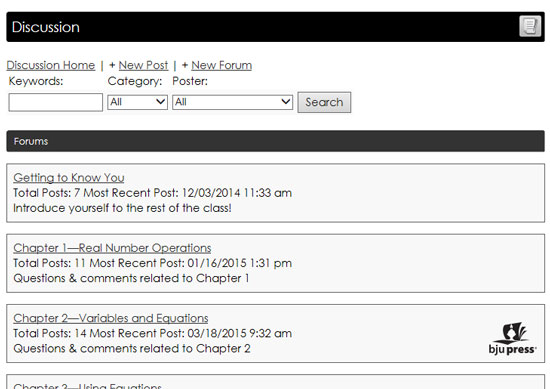
Our distance learning teachers have integrated different activities and materials specifically for your child into their courses. All of the educational materials we provide are designed to build up your child’s joy of learning. In the next post, we’ll share additional features in DLO, such as adjusting settings and connecting with others.
Subscribe to the blog so that you’ll be notified when the DLO additional features post is published!


